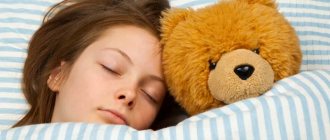12.08.2020
Sleep is one of the most mysterious phenomena about which we still know very little. How does the body recover during sleep? Why does sleep disruption cause serious mental and physiological problems? Where do dreams come from and what do they mean? Scientists, of course, managed to obtain some answers, but most of the questions still remain unanswered.
What is important for us is that sleep is a universal means of recovery, which allows us to remain alert, healthy and, as a result, more productive compared to those who, for one reason or another, do not regularly get enough sleep. Below we will talk about the causes of insomnia, its consequences and how to deal with it at home.
Causes of insomnia
There can be many reasons why you cannot fall asleep at night. More importantly, without enough sleep, you put your body and nervous system at risk. If you have a hard time waking up in the morning, are constantly irritated, and feel tired during the day, you are probably not getting enough quality sleep.
Headache is another consequence of insomnia and sleep disorders. Morning headache is one of the most common. It occurs precisely due to lack of oxygen. Lack of oxygen, in turn, occurs due to the fact that the room is poorly ventilated. If you ventilate the room well using, for example, ventilation, your head will not hurt.
In addition, symptoms of lack of sleep can include loss of appetite, memory loss and constant drowsiness. Simply put, if you're having trouble falling asleep and waking up, you likely need to rethink your sleep schedule.
Ten minutes is enough for a healthy person to fall asleep. If it takes much longer, the following factors are likely interfering:
- Bright light . The screen of a monitor, smartphone, TV or, for example, a desk lamp that is not turned off deceives your natural internal alarm clock, which makes falling asleep much more difficult. To fall asleep quickly and efficiently, you need to turn off the lights and also close the window if it’s day outside.
- Unfavorable microclimate . If the air is bad or stale, it is more difficult for the body to enter a relaxed state, which can also cause insomnia. Ventilate the bedroom, monitor humidity and prevent the appearance of allergens - by following these simple rules, you can fall asleep quickly and soundly at night.
- Food quality . Coffee, alcohol and high-calorie foods prevent the transition to deep sleep. Due to the consumption of foods that irritate the nervous system, the brain continues to work even in a half-asleep state, which causes lack of sleep. Therefore, you need to eat healthy food, not drink and not smoke - it would seem obvious things, but for some reason many people forget about it.
- Excessive load . If you worry about something or play sports right before bed, you won’t be able to fully rest, because distracting thoughts or tense muscles will prevent you from doing so. If you have problems sleeping, we recommend that you engage in vigorous activity in the first half of the day.
- Strong odors . Too bright odors also prevent the body from completely switching off, diverting its attention to the sense of smell. Therefore, in order to fall asleep quickly, do not use excessively irritating air fresheners, perfume, or leave food in the bedroom.
It is important to make going to bed a kind of ritual. Transform your bedroom and bed into a place dedicated exclusively to sleeping. If you watch TV in bed, play games or even read, over time your brain will learn to do all the necessary things first, and only then turn off. Thus, even if you just lie in bed and try to fall asleep, the body will not allow you to do this, expecting its usual actions - watching your favorite TV shows, etc.
How to deal with insomnia
In many cases, sleep disturbances can lead to more serious consequences - insomnia. This disorder is characterized by either poor quality of sleep over a long period of time (anxiety, restlessness, irritability) or its complete absence. Most often it is associated with lifestyle rather than health problems. Therefore, at the first signs of insomnia, you should not immediately sound the alarm and run to the pharmacy for sleeping pills - in most cases, it is enough to reconsider your daily routine, habits and attitude towards life in general.
What methods will help get rid of insomnia? Let's list the main ones:
- Give up bad habits. Smoking constricts blood vessels, which, in turn, leads to vagotonia, a disorder characterized, among other things, by sleep disturbances. As for alcohol, contrary to popular belief, it does not help you fall asleep quickly, but, on the contrary, prevents it. Large doses of alcohol quickly “turn off” the brain, but make sleep short and of poor quality.
- Create a daily routine. The faithful companions of insomnia are constant “lack of sleep.” It is known that an adult needs a full 8-hour sleep, but, unfortunately, not everyone takes this seriously. As a result, chronic lack of sleep becomes a problem that is fraught with not only psychological, but also physiological disorders. It is also recommended to avoid long naps during the day (although a short nap after lunch is beneficial).
- Don't forget about vitamins. Often chronic insomnia is a consequence of a lack of vitamins B and D, as well as calcium and magnesium in the body. Review your daily menu and include more foods rich in beneficial microelements: fresh fish, vegetables, fruits, herbs, nuts. Consult a therapist, choose a vitamin complex for yourself and drink it every 6-12 months.
- Cultivate stress resistance in yourself. Emotional experiences contribute to the release of adrenaline, prolactin and cortisol, which mobilize the body’s strength to fight an external threat. If he gets used to this state, this inevitably leads to sleep disturbances, even the most serious ones. The advice is simple: perceive life's difficulties as a chance to become better and stronger, and not as a tragedy. Study the techniques of Buddhists and yogis that help control consciousness and emotions in order to avoid stressful situations (by the way, in yoga you can find many ways to quickly fall asleep in the form of special exercises - asanas). Learn to meditate.
- Don't take antidepressants. Medicines designed to combat apathy, depression and insomnia have a significant drawback - they are addictive. Manufacturers may claim that this is not the case, but you should not believe them. Here we are talking not about physical, but about psychological dependence - over time, it begins to seem that without a pill you will no longer be able to sleep peacefully, and your hand itself reaches for a tube of sleeping pills.
How to fall asleep quickly
The main sign of impending problems caused by insomnia is the inability to fall asleep. Simply put, if you lie in bed for a long time, scrolling through any situations or monologues in your head, most likely you have sleep disorders. There are several methods to help you fall asleep without medication. By the way, taking sleeping pills can harm the body if you use them constantly.
What you need to fall asleep quickly:
- Count sheep or any other objects. It would seem a banal method, but diverting attention to monotonous thoughts makes it possible to disconnect from anxious experiences and quickly fall asleep.
- Imagine any familiar object and try to examine it carefully, mentally rotating it and changing the distance to it.
- Dream, or remember a pleasant moment in life. Using this advice, in some cases you can fall into so-called controlled sleep, which you can control at your own will.
- Sit back comfortably in bed, relax and lift your eyeballs slightly under your eyelids. This eye position is considered natural for the deep phase of sleep and allows the body to relax faster.
- Try focusing on the physical sensations, mentally keeping your attention on your fingertips or face. Experts in the study of processes occurring during sleep assure that this life hack also allows you to quickly fall asleep without sleeping pills.
Interestingly, the thoughts or objects that you imagine while freely fantasizing say a lot about your mental state.
Sleep depends on air quality
The worse the air, the more difficult it is to sleep. Therefore, most of us try to ventilate the room before going to bed or even sleep with the windows open. Unfortunately, this is not always possible. In cities, the street is usually very noisy and if you open the windows, it will simply be impossible to sleep. In addition, for six months in our country in most regions there is a cold temperature and open windows can cause colds and constant discomfort.
“Fortunately, there is a way out here too. To sleep in silence, while keeping the air fresh, you need to install supply ventilation, which will continuously provide air flow from the street.”
Fresh air has a soporific effect, which has long been known in the medical community - in hospitals, oxygen is used to put patients to sleep. Therefore, the presence of fresh air ventilation guarantees that you will fall asleep quickly and have deep sleep.
How does the supply air purifier work:
- The purifier provides a continuous flow of air, which allows you to maintain high oxygen levels. If this does not happen, the brain experiences oxygen starvation, leading to poor sleep quality and headaches in the morning. In addition, high-quality ventilation allows you to get rid of such problems as long and painful falling asleep. The influx of fresh air allows you to fall asleep much faster, and the sleep itself ceases to be sensitive, becoming deeper.
- If you install a ventilator, you do not need to open the windows. This allows you to get rid of the so-called peak noise load, which is the main reason that the brain does not fall into deep sleep. That is, we can get used to uniform noise, but if the sound changes the volume level (for example, a car passes under the windows), we are constantly in a semi-drowsy state, unable to fully fall asleep. Supply ventilation allows you to solve this problem.
If the room you sleep in is well ventilated and you don't have to open the windows, your sleep will be deep and restful. A few hours will be enough for you to fully recover and feel fully rested. After several days of good sleep, your health will improve and your performance will increase significantly. That is why, with poor sleep and insomnia, it is important to take care of proper ventilation.
A small example of how fresh air makes sleep deep and quality. If you have ever lived outside the city in a wooden house, you know how well you sleep in it. The secret is in the fresh air that enters the house through the walls, because... wood can “breathe”. By installing a supply air purifier, you can create the same conditions as in your dacha, ensuring a restful and deep sleep, no matter where your home is located.
Learning to fall asleep quickly
About 40 years ago, an interesting experiment was carried out on English television - in the evening, a popular channel showed a program where the presenter silently looked at the camera for 20 minutes and simply... yawned. We all know how contagious yawning is, so it is not surprising that people who watched this program also began to yawn, stretch, and then slowly get into bed. This worked even for inveterate night owls and those who usually do not want to sleep late in the evening.
Despite the success of the experiment, it has not been practiced for a long time either in England or in other countries. Meanwhile, statistics show that almost a third of the adult population has sleep disorders, and perhaps everyone has experienced problems with falling asleep.
5 effective methods to help you fall asleep
1. Clear your mind
For some, multiplication tables help them fall asleep, for others it helps to count sheep, for others it’s a dream of a seaside holiday or memories of childhood. Think about which images are close to you.
For example, imagine how the tree crowns rustle on a summer day, how sunbeams play in the depths of a dense forest, on remote paths overgrown with nettles... Where do these paths lead? Do you want to walk along them? Give free rein to your imagination, let it fill in the details: wild rosemary along the edges of the path, the chirping of birds, a cobweb between old pines. And the path leads you further and further... Along with such thoughts, peace, tranquility and sleep will come.
Another way: imagine a big house. This can be either a real or a fictional building. Then mentally enlarge it to enormous size and examine all the details - cornices, gables, roof slopes, cracks in the walls. This mental projection will distract you from the worries of life and help you fall asleep faster and have a good night's sleep.
2. Master breathing techniques
Followers of yoga and other eastern practices claim that regular simple exercises before bed can cure any insomnia. Indeed, during the day we experience physical and emotional stress, and many yogic techniques are aimed specifically at relieving muscle tension, which leads to the necessary relaxation, clearing the mind and sound, healthy sleep.
Examples include breathing techniques “5-5-5” and “4-7-8” . Each number is the number of seconds during which you need:
- gently draw air into your lungs;
- hold the breath;
- release the air.
In this case, the mouth should be closed, and the tongue should rest against the palate, above the line of the teeth, inhalation/exhalation is carried out through the nose.
Important advice from experts: when doing exercises, do not think only about technique, use a creative approach. For example, imagine that along with exhalation, anxious thoughts leave the brain, and with each new breath comes bliss and pleasure...
Despite their apparent simplicity, these techniques are very effective. As a result, your body will be saturated with oxygen, and mentally counting seconds will increase fatigue, and this will help you fall asleep faster.
3. Maintain good sleep hygiene
Buy an orthopedic mattress and pillows - they help you relax. Bed linen and sleepwear should be made from natural materials - silk, cotton, bamboo.
Folk remedies, such as the aromatic power of herbs, will help calm and induce sleep. Of course, it is difficult to arrange full-fledged herbal aromatherapy at home. On the other hand, this is not required: just buy a small pillow that will lie at the head of the bed and exude the healing aroma of anise, basil, chamomile, valerian or motherwort. Herbs can be bought in specialized online stores or collected and dried yourself.
4. Start a mode
Psychologists say: any habit becomes part of life in just 21 days. Make a schedule and follow it during this time, and see how much easier it will be to wake up in the morning, feel energetic, healthy and enjoy every new day.
This is especially true for falling asleep and waking up - learn to go to bed and get up at the same time. If you have a “floating schedule,” it’s difficult for your body to get into the right mood, and you’re unlikely to get a good night’s sleep.
Include physical activity in your routine, but set aside the evening for rest - at this time of day the muscles should be relaxed.
Do not eat heavy food 3 hours before going to bed, otherwise the body will spend energy on digesting it, which will increase the duration of falling asleep. In general, it is better to go to bed on an empty stomach - just drink a glass of warm milk or plain water.
5. Ensure a healthy bedroom climate
The lack of fresh air cannot but affect your well-being. Sleeping in a stuffy, unventilated room often leads to oxygen starvation (hypoxia), which manifests itself in headaches in the morning. The reason is that the increased concentration of carbon dioxide exhaled during sleep provokes active dilation of blood vessels, and this, in turn, causes a feeling of heaviness in the head, increased fatigue, and general malaise.
In some cases, air conditioning will help, but it will not completely save the situation. There are several reasons:
- Extra noise. Most modern split systems produce noticeable sounds that prevent you from falling asleep soundly;
- Possibility of getting sick. If you lie under the flow of air from an air conditioner all night, you can develop a runny nose or a neurological disease;
- Lack of fresh air. This is the main disadvantage: the air conditioner does not take air from the street - it simply cools the air that is already in the room and sends it back.
Supply ventilation device
Supply ventilation is a regular pipe through which street air is supplied to the room. To ensure the most stable and uniform flow, a fan is installed in the system. Moreover, most systems can change the air supply speed, which allows you to create a comfortable microclimate in the room.
The air conditioner does not solve the problem of fresh air and oxygen, since it cools the air that is already in the room, so it is useless for deep sleep and falling asleep quickly.










